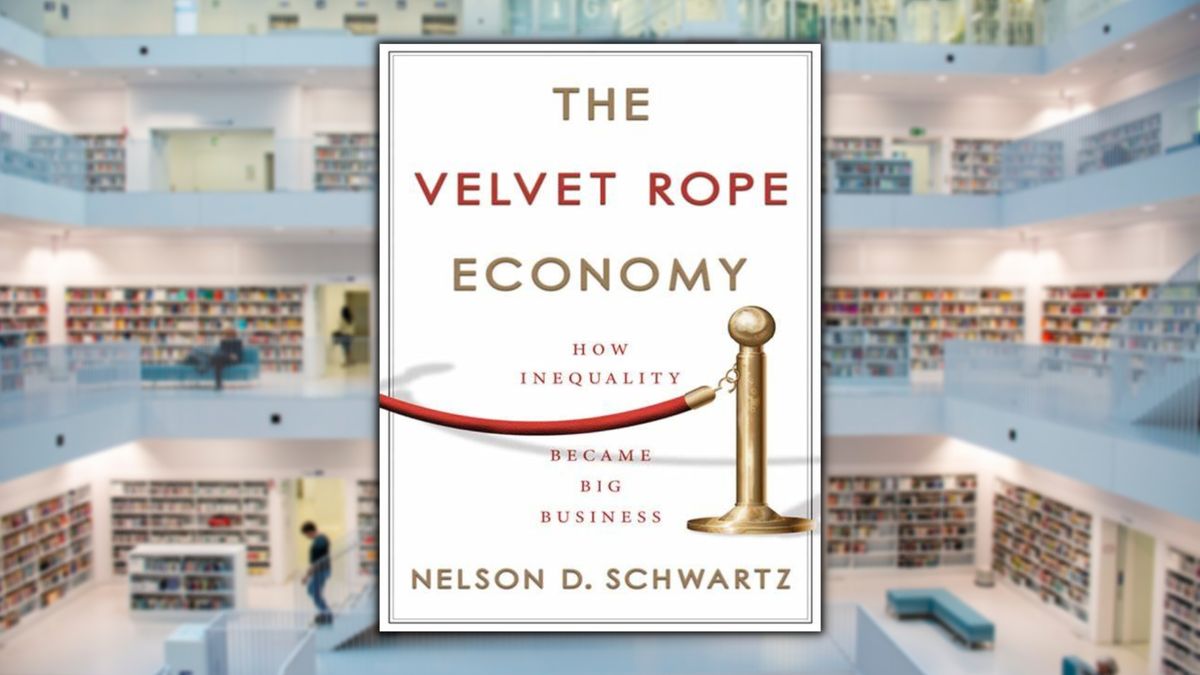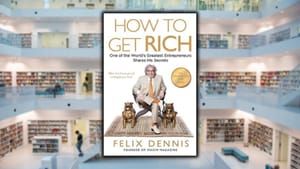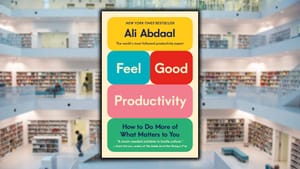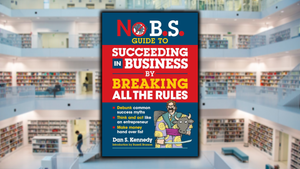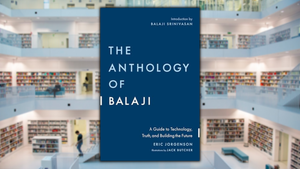
This Book is For:
*People who are interested in fairness and ethics as they relate to economics, and who want to understand more deeply the nature and consequences of rampant inequality in America.
*Anyone who wants to learn more about group dynamics, and how the relentless drive for status and recognition shapes our lives, our societies, and our world.
*People who are concerned about poverty and inequality generally and who want to translate the lessons of poverty in America into solutions in their own countries.
*Literally anyone who is concerned about the level and extent of the inequality present in the world today and who sees the value in thinking deeply about the kind of societies that allow it to continue.
Summary:
“Whatever the arena in contemporary life – health care, education, work, travel and leisure – on the right side of the rope is a friction-free existence where, for a price, needs are anticipated and catered to. Red tape is cut, lines are jumped, appointments are secured, and doors are opened.
On the other side of the Velvet Rope, friction is practically the defining characteristic, with middle- and working-class Americans facing an increasingly Darwinian fight for a decent seat on the plane, a place in line with their kids at the amusement park, a college scholarship, or a doctor’s appointment.”
In the near future, society will be divided between the have-nots and the have-yachts. Between the people who have just enough, and the people who have more than they could ever need or spend.
Even though we are lifting people out of extreme poverty at an unprecedented rate, the very wealthiest people in the world are also adding to their riches at an unprecedented rate, and the reigning theory is that this is going to continue to cause big, potentially harmful changes in the economic landscape going forward.
With that background in mind, Nelson D. Schwartz’s book is about the increasing split between the segment of consumers that are willing and able to pay for extra privileges and accommodations, and those who will have to take what they can get in this two-tier system.
Schwartz is an economics reporter for The New York Times, and The Velvet Rope Economy is his sometimes intriguing, sometimes infuriating, but always illuminating investigation into the invisible rift that divides how poor Americans and rich Americans live.
In numerous areas, from health care, schooling, travel, leisure, and more, there is something akin to a velvet rope separating those have-nots and the have-yachts, yielding outrageously skewed, unfair outcomes in a country that claims to offer unlimited freedom and opportunity.
The chapter titles are intriguing in themselves: “Envy,” “Exclusivity,” “Ease,” “Access,” and “Security.” More dangerously, as I'll discuss later on, he could have easily included the word "Resentment" as a chapter title. That, to my mind, is the real issue here.
Personally, I will never begrudge others for having more, just as long as I have enough. And, crucially, as long there is some hope, some opportunity to gain more through my own efforts, I will never resent anyone for being able to afford these elevated experiences. But from the perspective of those who currently have nothing, those who have everything will always have everything, and the have-nots will be forever blocked from accessing that fabled land of opportunity that was promised to them by those already safely ensconced behind the velvet rope.
The word "friction" also appears quite often in this book, and that's an important theme here as well. Life is senselessly difficult for those at the bottom, and there are roadblocks in every direction, barriers blocking them from getting ahead, rising above their debt, and building a real life for themselves.
Outside the velvet rope, things like overdraft fees are more than minor inconveniences: they are reminders of insignificance and irrelevance. If you think about it, they're basically taxes for not having enough money to pay your bills. Meanwhile, somewhere else, in a room to which they have been denied entry, a "free and equal" American citizen is handing over their black card to pay tens of thousands of dollars for concierge medical service or a breezy trip on a private jet.
This book didn't make me angry. At least, it didn't make me angry at anyone (okay, maybe there are a few jerks whose stories are told in these pages that I have very little respect for). I disdain greed and callousness, but I don't hate the greedy and the callous. I still hold out hope for their full moral development.
The humanity of many have-yachts is severely stunted, and I believe that many of them have a lot to learn about fairness, decency, and respect, but I'm not going to poison my own heart by remaining angry towards some faceless "1 percent." It's the system that is severely flawed, but then again, which system isn't? Isn't it the human beings within each system that make it what it is? Or perhaps it works both ways? Most likely.
This is a challenging book; not for its difficulty level, style, or language, but simply because it forces you to think deeply about what this trend could mean for our public spaces and how we relate to each other as individuals.
Schwartz’s contention is that as the better-off contribute less and less to the public good, the quality of our public spaces – and even our public discourse – will steadily depreciate and degrade, and the entire fabric of society will be worse off than it was before.
His arguments demand deep thought and deliberation, and I also thought highly of his discussion of the two types of envy: malignant or benign.
Benign envy is a relatively healthy reaction to the success of others, where we are inspired or motivated to do better ourselves when we see other people succeeding. Malignant envy, on the other hand, is the desire to tear someone else down just so they will have as little as the envier does.
I'm not "against" other people being able to afford access to an elevated existence, but I do see it as a problem that this "architecture" of inequality is more or less hidden. In such a society, people on the "inside" lose all incentive to care about what happens to people on the "outside," and those on the outside resort to desperate, destructive means for a chance to participate in the dream. Inequality leads to resentment, resentment leads to violence, violence leads to chaos, and chaos ruins it for everybody.
This is one of the better nonfiction books I’ve read in recent memory, and open-minded thinkers of all political persuasions would benefit mightily from reading it. While engaging with Schwartz's arguments, I didn’t feel as though I was being pressured to accept a political agenda; instead, I just felt as though someone who cared deeply about the less fortunate was trying to get me to pay attention to something incredibly important and real.
Nelson D. Schwartz plays the part of the lookout on the Titanic which is the ship of American inequality. We have time to veer away from the iceberg we've built with the unfairness of our current system. But the 1st Class passengers need to start talking to the Coach passengers, and the ideas put forth in this book represent an excellent first meeting place.

Key Ideas:
#1: The Growing Divide
“Whether you call it a closed loop or a virtuous circle, it works out very well for everyone on the inside.”
Dividing people into "classes" always dims my spirit just a little bit, and so I generally resist doing so. It just doesn't have enough explanatory power for me. Describing a person by pinpointing their economic class is a little bit like defining the Earth as a solid. There's just so much more to it than that.
Here, however, it might help to define our terms before we proceed with our discussion. So what kind of wealth does it take to get a person behind that velvet rope? What makes a one-percenter?
At the time of writing, Schwartz defines a middle-class income as belonging to the 40th-75th percentile in terms of wages, which turns out to be between $35,000 and $80,000 per year. The upper class is between $80,000 and $207,000 per year, and the top 1% would include people who earn $207,000 and up, with an average yearly income of about $1,305,000.
So those are the kinds of numbers we're dealing with here, but Schwartz is the first to admit that they don't take into account things like location, which would throw off these calculations quite a bit once you consider what $80,000 might buy you in New York City versus Brownsville, Texas.
All that being said, the main point is that upper-class consumers in all localities increasingly have access to a wider array of services and experiences that the "lower classes" of consumers simply do not. If you have the money to afford prestige medical care in New York, it's available to you, whereas "lesser" citizens have to wait to see the cheapest doctor available, when and if they are available. This gap in access is growing all the time, with no end in sight.
I will say that it's been my belief (strong, but loosely held) that it's much better for all of us if we lift people up, instead of tearing anyone down. For my money, I don't much care whether someone else can afford super-elite extra-special box seats at the Yankees game, just as long as the poorest among us don't have to starve. Am I taking crazy pills here? Or is this how you feel about it too?
Seeing someone else have more has never made my own life worse.
Where this becomes a legitimate problem, however, is that resentment concerning this state of affairs is also growing at an alarming rate, and resentment is a destabilizing force that threatens all of us.
Some people believe that the pie is limited and can't be made to grow any bigger, and so when they see others hogging more than their fair share, they resort to violent, aggressive action in order to rectify the situation. And that's the most dangerous problem with all of this, at least as far as I can see.
Give them their box seats and their expensive specialists and their private jets! They can have their guided tours of Disney World and their separate schools! But goddamn it, not while their fellow citizens - their fellow human beings - are deprived of all opportunity and of all hope.
#2: The Gutting of the Public Square
“Separation is now taking place within public institutions as well, subverting the values that made them public in the first place.”
Witnessing exhibitions of the wealth of others doesn't make you worse off, but it feels as though it does, and the spread of that sentiment does make us all worse off as a society. Allow me to explain.
The growing divide between rich consumers and poor consumers creates a society in which neither "side" ever talks to one another, a nation in which we all slowly become strangers, never having a chance to empathize with anyone whose life experiences differ from our own, and with people who might have something to share with us that's more valuable than concierge travel services.
It erodes the fellow feeling we have for the people with whom we share the earth, and the erosion of that feeling is a threat to everyone, everywhere. Trust collapses, resentment builds, and before we know it, we have a massive society where no one knows anyone and no one has any interest in making anyone else's life go better.
That's the main thrust of the problem here. It's that in order to want to make things better, it has to matter to you whether those things improve at all. If you can just pay for a better school or a completely different experience somewhere else, you'll have no incentive at all to make any positive changes for anyone but yourself. And that's not a society that anyone should want to live in.
If you aren't spending any time in the places that are crying out to be improved, you won't care about what happens to them. "No funding for public schools?" you might ask. "That's too bad. My kids go to private school anyway. Good luck, though."
Furthermore, when you are deprived of the opportunity to interact with anyone outside of your "class," it becomes much easier to disregard or demonize the members of those "other" classes. This goes in both directions, by the way. The wealth gap rises, the empathy gap widens, and anger, resentment, and violence all rush in to fill the void.
#3: The Two Types of Envy
“Our envy always lasts longer than the happiness of those we envy.”
-François Duc de La Rochefoucauld
One of those moments when you feel as though you just have to put the book down and really think about what's been written occurred for me during Schwartz's discussion of envy. He posits that there are at least two kinds of envy: benign envy and malignant envy.
The former is a relatively healthy reaction to the success of others, where we feel inspired or motivated to improve our own situation and keep up with them or surpass them. We can sometimes feel benign envy when we see someone achieve something worthwhile that we'd like to achieve eventually as well.
Examples could be when we see a friend lose 100 lbs. and compete in their first marathon, and we think to ourselves, "I'm more disciplined than them - I can do that too!" Or when a colleague earns a coveted promotion and we start thinking of ways in which we could earn a similar promotion ourselves.
While it's certainly a step in the right direction - if their example motivates you to put forth an extra effort at work, start exercising in the morning before everyone else wakes up, or ask someone special out on a date - the basic, underlying emotion is still envy, which is never a positive force.
Malignant envy, in contrast, would be the desire to tear someone else down so that they end up having as little as we do. It's where we observe someone else's success and fulfillment and resent them for it; we wish they didn't have it more than we wish to have it for ourselves. We also might not mind not having it, just as long as they didn't have it either. That would be an example of malignant envy.
Personally, I fear that most people's reaction to hearing about the affluence and access attained by people beyond the velvet rope would be one of malignant envy, which is ultimately a more destabilizing force than benign envy. It tends toward the enaction of a "scorched earth" policy where wealth is concerned. A nation gripped by malignant envy is less concerned about lifting the velvet rope and more concerned with setting it on fire.
#4: The Price of Extraordinary Service
“The reason you have all this segmentation is because people are willing to pay not to be ordinary.”
Status anxiety is nothing new - and neither is the subconscious fear of death; more on that later - but it's generally observable that people in industrialized societies will often go to extreme lengths not to be perceived as simply ordinary.
It seems as though nobody wants to be seen as "just" a nobody, and so you have people lining up for hours, days even, just to buy the latest iPhone, going into debt to replace the new car they bought only two years ago, and agonizing over the size of their television or the health of their lawn and garden compared to their neighbors.
Companies know this all too well; they aren't stupid. They understand that people are like this, and so they offer "Black" cards, "Titanium" members areas, and "Platinum" rewards programs so people can pay to feel special. More special than those poor saps who aren't rich enough to rise higher than the "Gold" level or some such foolishness.
According to Schwartz, some companies now use the measure of Customer Lifetime Value (CLV) to determine whose calls get answered quicker when they call customer support. That's right: If they look at your file and see that you've spent a lot of money with them so far, your call will go straight to the top of the pile and you'll be taken care of first.
Not every company does this, of course - it's a pretty advanced tactic as far as business practices are concerned - but many of them certainly do, and they do it because it's been shown to be profitable. It's just business. How it's done behind the velvet rope.
Capitalism, greed, and status anxiety aren't the only forces driving this customer segmentation, of course. In The Laws of Human Nature, Robert Greene shows us that human psychology and motivation are fascinatingly complex and that there is rarely just one answer to why people do anything. There are usually multiple factors at play.
In one of my favorite books of all time, The Denial of Death, by Ernest Becker, he even shows that the subconscious fear of death influences our decisions more than we tend to realize. The idea, the belief - held beneath conscious awareness - is that if we pile up riches and accomplishments and accolades; or even if we create timeless works of art or have children who will outlive us, that we will somehow live on. Getting behind the velvet rope shields us from the fear of death.
So, while it would be reductive simply to say that "people buy privileges just because they're afraid to die," or because they are gripped by "status anxiety," etc., the answer to the question of "why" is a mixture of all these factors and more.
#5: Three Possible, Partial Remedies
“In the Declaration of Independence, the founders declared that the idea that ‘all men are created equal’ was a self-evident truth.
But later in the very same sentence, ‘the pursuit of happiness’ is defined as an unalienable right. The impulse to pay to jump the line is always going to be there; just how far it goes is ultimately up to all of us and according to the social norms we enforce.”
Inequality is a mathematical law of the universe. Variations of the Pareto Principle hold up across categories and domains, the Principle being originally developed by Italian polymath Vilfredo Pareto upon discovering that 80% of the land in Italy was owned by 20% of the population.
The following numbers aren't exact, of course, but universal inequality (we'll call it) determines that 20% of authors will sell 80% of the books, 80% of men and women are attracted to 20% of the members of the opposite sex, etc. It might be unfair that Agatha Christie has sold hundreds of millions of copies of her books while some unknown author of (arguably) even greater talent slowly starves to death, but there's really not a whole lot that can be done about it.
Inequality will always exist, but lack of opportunity must not. There's also no mathematical law that I'm aware of that states that millions of children under the age of 5 need to starve to death each year while millions of Americans are dying from an epidemic of obesity. Or that millions of Americans need to be drowning in debt while a select few get whisked to their gate to board their private plane at their exclusive terminal.
So what's the way forward? How do we get to paradise from here?
The problem of inequality resists easy answers, and to his credit, Schwartz doesn't attempt to offer any here in this book. He does, however, present three potential, partial solutions that could go a little way toward evening out the American playing field, all of which deserve consideration and careful thought.
The first is that the owners of these businesses and the leaders in the business world could take a moral stand against avarice and greed, and cast a different vision of what they want their companies to stand for.
There are a few of them that do this already, such as Southwest Airlines, which offers low-cost commercial flights and a more egalitarian travel experience overall. Starbucks is another example, with their vision of the "third place" being somewhere we can all meet and gather as equals and pay $10 for worse coffee than we can make at home by ourselves.
There's no doubt that companies would be throwing away extra profit by not catering to the "advanced" desires of richer consumers. They would be deliberately leaving money on the table, which goes against the Ayn Randian idea of the profit motive. Businesses exist to make money, she would say, and if you've earned those revenues fairly, why would you voluntarily relinquish them?
There is some merit to that argument. I mean, what kind of moral claim can anyone make on business profits that you've earned through your own legal risk-taking, effort, and initiative? Just because it's the "right" thing to do? Just because other people need that money? Is that enough?
And yet...
Numerous companies around the world have shown that you can do well by doing good. You can be wildly profitable and still make a positive difference to your community and the world at large. These two imperatives do not have to be mutually exclusive, although some corporate greed-mongers clearly haven't gotten the message. Not to mention that a policy of"enlightened self-interest" can often masquerade as thinly veiled greed.
Again, no easy answers. But it's simply too easy to say that business can't be a force for good. It so obviously can be. It's just that certain high-profile misers too often give business a bad name.
Schwartz's second idea is to transform the cultures of some of these corporate entities to reflect a more egalitarian, win-win view of commerce and the greater good. A culture of giving, equality, responsibility, and integrity can be extremely powerful motivators of behavior themselves, and again, it's up to all of us to choose the kind of cultures we wish to live and work in.
We do this by consciously choosing whom we associate with, what kinds of companies and businesses we support, and what we do with our votes and our dollars, which sometimes amount to the same thing.
The people, books, and ideas you surround yourself with matter so much, and even if you can't feel them working on you day by day, the health and well-being of your heart and mind are directly impacted by the forces operating in your environment, for better or for worse. It's worth it to focus on consciously curating this environment based on your values and the direction in which you wish your life and work to go.
This is true both on a personal and community level. If you surround yourself with givers, with people who may or may not be rich but who consistently give their time and/or a portion of their earnings to those less fortunate, you are casting a vote for the kind of culture you wish to predominate.
Third, Schwartz points out that a good system that is mostly fair is better than an absolutely perfectly fair system that never gets implemented. We've touched on this earlier, but it bears repeating. Things are horribly, monstrously unfair for vast swaths of the human population right now. But they're getting better, and we just need to keep pushing, instead of throwing in the proverbial towel.
#6: There's Room Enough for All of Us
“Capitalism exists with the consent of democracy, and the more the vast majority find themselves not just outside the Velvet Rope but treated with disdain, the system itself is threatened.
It’s up to all of us – including those well-ensconced inside the Velvet Rope – to create a less segmented society, where Americans from different walks of life actually meet one another and find common ground. If they do, maybe there will be more talking, and less shouting, in public life.
It won’t be easy. There are huge profits to be made in the Velvet Rope Economy, and the temptation there is always to raise the cordons even higher. That’s the way things are going. But it doesn’t have to be that way.
There’s room enough for all of us inside the Velvet Rope.”
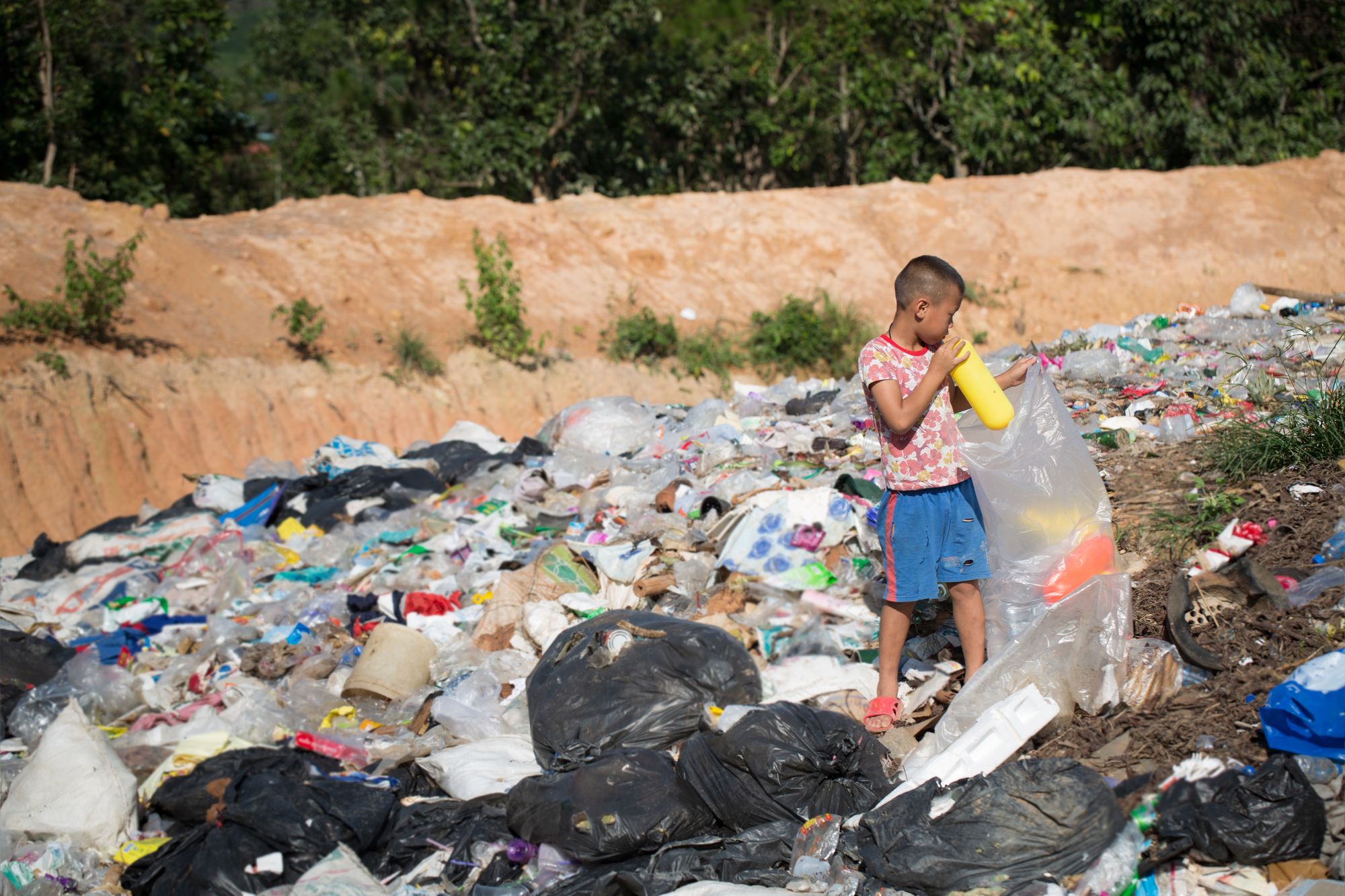
Book Notes:
“The name for the American system of government, a republic, comes from the Latin res publica, or public things. As the public sector is replaced by private services aimed at the elite, the very foundation of the republic is eroded.”
“When these two factors – product differentiation and capacity constraints – are combined, the sky becomes the limit in terms of what sellers can charge, what buyers with the means will pay, and the profits that can be earned.”
“The Pareto principle applies to the Velvet Rope Economy as well. For our purposes, it means that a disproportionate share of profits come from a relatively small group of customers, in this case, the ones who are the richest and can spend the most.”
“Premium cabin menus play to these customers, the consultant said. ‘You’re never going to impress the true rich people with food or wine,’ he said. But the third group is impressed by offerings like duck, scallops, and shrimp. ‘It’s what they think rich people eat,’ he said. ‘It’s hard to prepare duck at 36,000 feet so it doesn’t taste good but duck sounds fancy to people.’
Meanwhile, to give coach passengers a hint of the good life up front, Delta has started serving free sparkling wine to everyone in the back of the plane after takeoff on international flights. ‘It’s cheap as shit, but it’s been a huge hit,’ the consultant confided.”
“Initially, he worried ‘who’s going to pay $10,000 per year? That’s crazy,’ he recalled thinking. ‘But they value their time so much, there’s almost no amount of money you couldn’t charge. They have much more money than time.’”
“A lot of these people got where they got because they are magnetic and fun to be around. I’ve taken care of actors, politicians, sports stars, and tech people. There are a handful that are a pain in the ass, but in many cases, I didn’t want to leave the room.”
“The best way to ensure access to health care is to live in a town that has a Nordstrom.”
“Things that make life simpler for a huge swath of the population are not available if you don’t have a debit or a credit card.”
“In a conference call with investors in December 2018, Vasos sought to reassure them that Dollar General shoppers were still struggling. ‘While the economy appears to be doing well, we know that our core customer is always challenged,’ he said.”
“Sticking with a hardworking family physician, rather than seeing a concierge doctor, is more equitable and won’t harm your health.
You don’t have to stay in the ship-within-a-ship on your next cruise. You might actually meet new people and broaden your horizons by traveling with everyone else.
Patronize an independent grocery store instead of a chain dollar store, and add to, rather than subtract from, social capital.
If you donate money to an educational institution, consider setting aside a portion for a school that doesn’t have a multibillion-dollar endowment, like New York’s City College or Chicago State.
Support local tax increases when the beneficiary is the public school system, the community hospital, the fire department, or public transit.”

Important Insights from Related Books:

Evicted, by Matthew Desmond:
This nonfiction account of the nationwide scourge of homelessness in America has won pretty much every book award that I could name off the top of my head and dozens that I couldn't.
To name just a few, it's won The Pulitzer Prize, the National Book Critics Circle Award for Nonfiction, The PEN/John Kenneth Galbraith Award for Nonfiction, The Andrew Carnegie Medal for Excellence in Nonfiction, the Hillman Prize for Book Journalism, and many, many more.
So yes, it's good. In the book, Princeton sociologist Matthew Desmond takes to the field and follows eight families in Milwaukee as they battle the indignities and hardships of being poor in 21st-century America.
Economic exploitation is nothing new, but here, Desmond actually leaves the protected enclosure of academia and spends a significant amount of time experiencing first-hand what millions of Americans live with each and every day.
Sample Quotes from the Book:
“These days, there are sheriff squads whose full-time job is to carry out eviction and foreclosure orders. There are moving companies specializing in evictions, their crews working all day, every weekday."
“If she told someone how damaged she was, and how she coped, would she be allowed to keep her children? This mother didn't know and wasn't going to find out."
"This degree of inequality, this withdrawal of opportunity, this cold denial of basic needs, this endorsement of pointless suffering - by no American value is this situation justified. No moral code or ethical principle, no piece of scripture or holy teaching, can be summoned to defend what we have allowed our country to become."
Read the Full Breakdown: Evicted, by Matthew Desmond
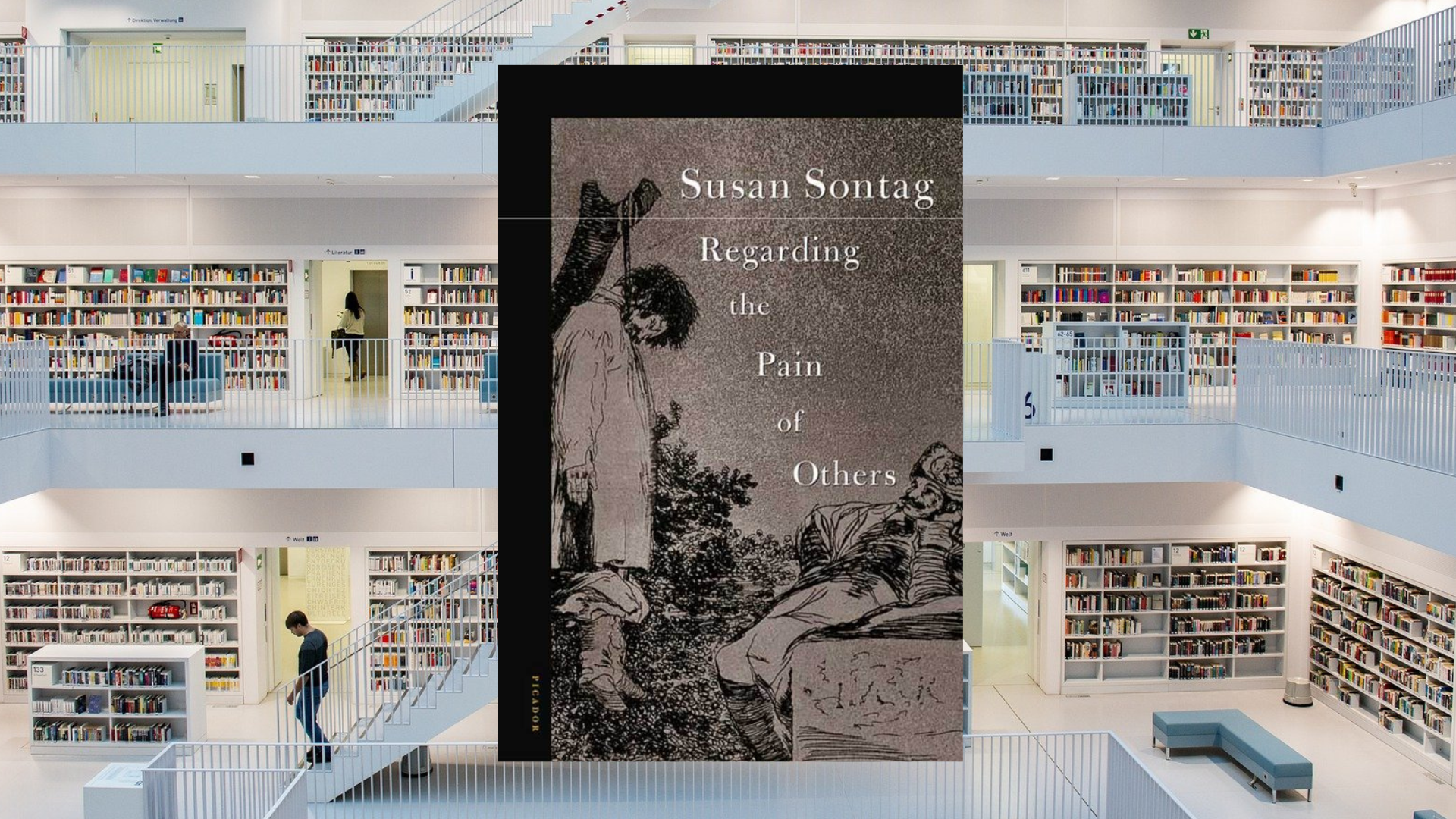
Regarding the Pain of Others, by Susan Sontag:
Are we changed by the images we're constantly exposed to during the day? Especially where images of violence, suffering, and misery are concerned, are we moved to action? Inspired to help? Informed? Depressed? Do they teach us, or numb us?
These are the questions that the brilliant essayist Susan Sontag asks us to consider for ourselves in this book-length essay that was nominated for the National Book Critics Circle Award and was her last published book before her death in 2004.
Regarding the Pain of Others is concerned mainly with photography, especially war photography. One of its aims is to answer Virginia Woolf's question from her book, Three Guineas, "How, in your opinion, are we to prevent war?"
Sontag wastes no words in examining what it means to care about what we see, and whether, eventually, we become anesthetized by the images we see so often, no matter what their graphic nature or the extremely unsettling moral claims they make on our attention and our actions.
Where it gets really interesting is when she focuses specifically on famous photos from history that have later been found to have been staged.
If a corpse or a bloody helmet is moved to a more "photogenic" location, does it have the same meaning as one that's more...candid? And can gruesome photos be artistic? Should they be?
What about framing - can't whatever the photographer leaves out change the whole meaning and reception of the image? If yes, isn't that also true of the caption? And what about the victims/subjects? Should they be named? What about privacy, dignity, and decency?
It's astounding how one photograph can lead us to ask so many uncomfortable - albeit fascinating - questions and Sontag faces them all down with inimitable insight, compassion, and subdued, righteous anger.
To experience someone else's pain is probably too much to ask from photography; there's always going to be a sense of distance, an essential difference between "viewer" and "subject." But I think to remain unaffected - or even to believe that you can remain unaffected is a mistake.
In Adam Smith's lesser-known book, The Theory of Moral Senses, he places sympathy at the center of "social gravity," and Sontag makes a persuasive case in her book that once we lose our sympathy, we've taken a significant step toward losing our humanity.
Sample Quotes from the Book:
“The photographer’s intentions do not determine the meaning of the photograph, which will have its own career, blown by the whims and loyalties of the diverse communities that have use for it.”
“Compassion is an unstable emotion. It needs to be translated into action, or it withers. The question of what to do with the feelings that have been aroused, the knowledge that has been communicated. If one feels that there is nothing 'we' can do - but who is that 'we'? - and nothing 'they' can do either - and who are 'they' - then one starts to get bored, cynical, apathetic.”
“Wherever people feel safe, they will be indifferent.”
Read the Full Breakdown: Regarding the Pain of Others, by Susan Sontag
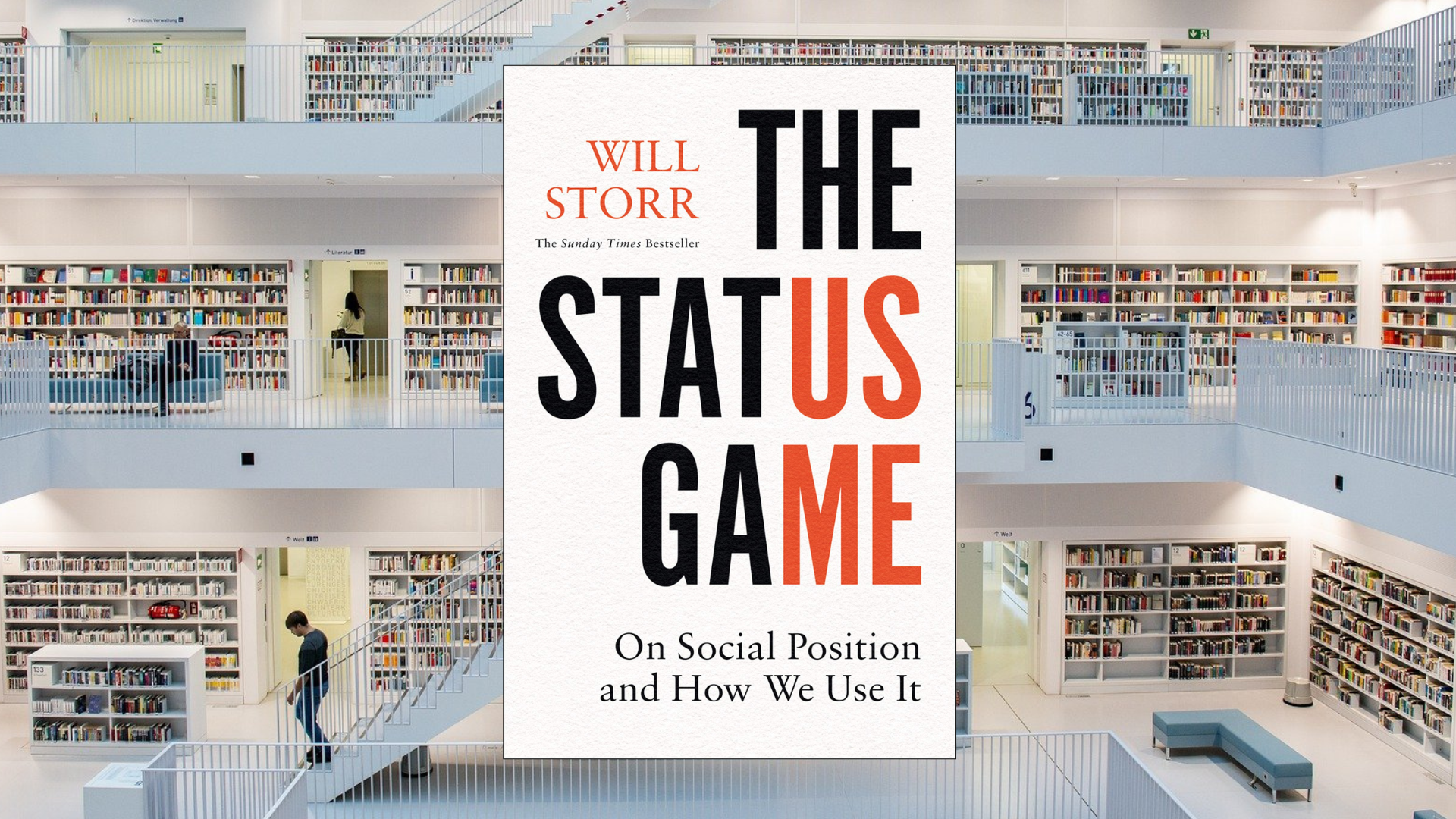
The Status Game, by Will Storr:
Put any group of humans together, and almost instantly they'll start trying to figure out who should lead, who's most worthy of respect, and who should be praised and emulated.
Not only that, but we each carry around a sense of where we stand in that hierarchy, and many of us go to rather extreme lengths in order to rise to the top.
According to the award-winning writer and journalist Will Storr (award-winning = high status!), the "status game" that we're all playing is an invisible thread that runs through the best and the worst of what human beings do all day.
Whether we're "winning" or "losing" affects our happiness and our self-esteem, our relationships with others, our goals in life and whom we choose to copy, and even how long we'll live.
All this being the case, just think about how complicated it is to be alive!
You've got all these forces - the cravings for status and for love, social conditioning and the impact on the individual of the wider culture, the subconscious fear of death, the swirling emotional storms affecting our thoughts and actions all day long, and so much more - how do we even live? How do we make sense of it all?
For that, we should be grateful to Will Storr as he explains a few of the rules of the Game of Life...
Sample Quotes from the Book:
“We can think of our reputation as a symbolic version of us that exists in the minds of others. Human brains required the capacity to store these highly detailed symbolic selves. Our neural worlds are crowded with hallucinations of others so vivid they can almost be summoned at will. We all walk around with everyone we know crowded inside our heads.”
“Status is an essential nutrient found not in meat or fruit or sunlight but in the successful playing of our lives. When we feel chronically deprived of it, or disconnected from the game, our minds and bodies can turn against us. To our brains, status is a resource as real as oxygen or water. When we lose it, we break.”
“The most potent weapon of mass destruction is the humiliated mind.”
Read the Full Breakdown: The Status Game, by Will Storr
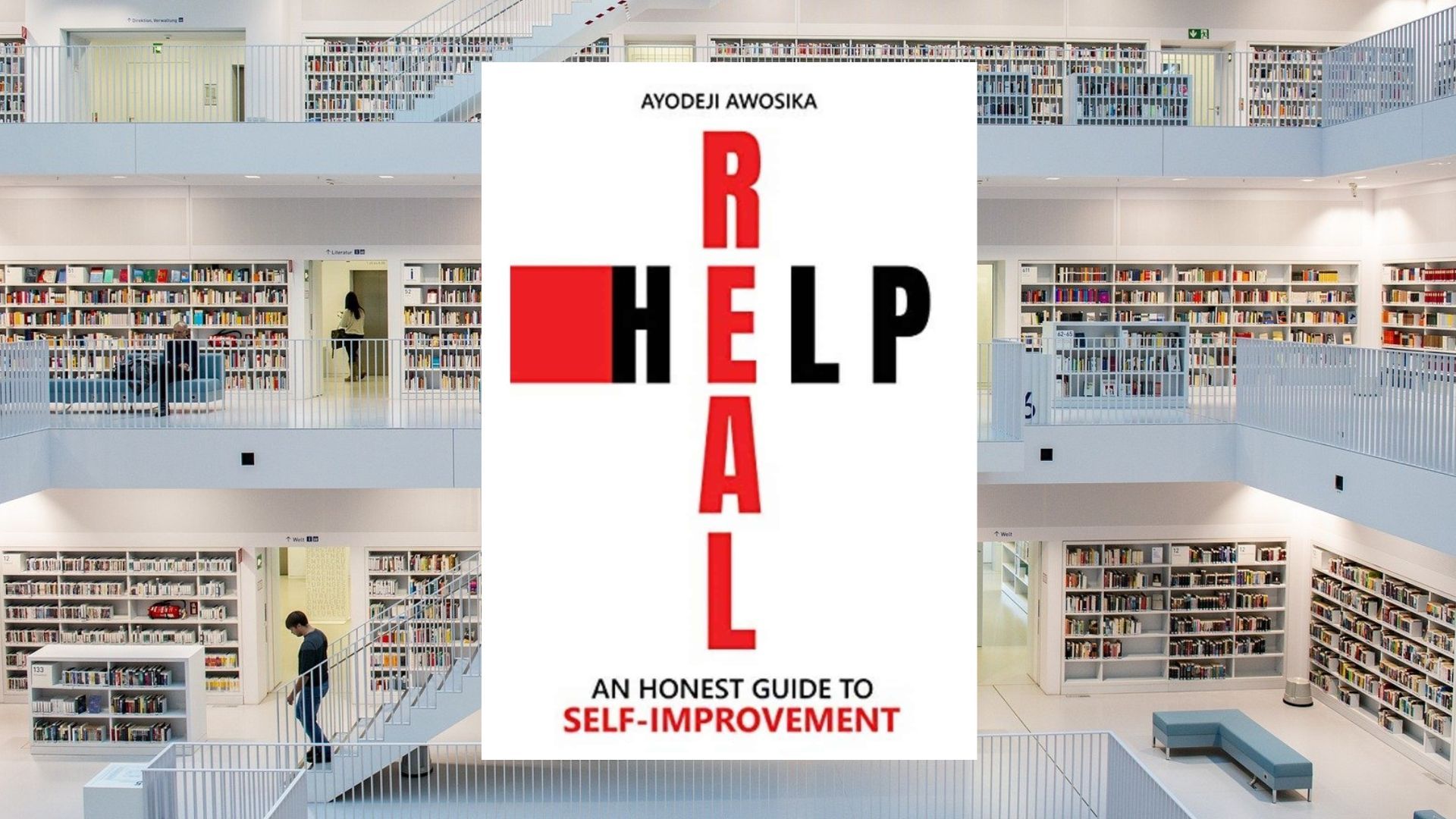
Real Help, by Ayodeji Awosika:
This book isn't going to rescue you. For better or for worse, that's something you'll have to do for yourself.
The truth, however, is that facing the fact that no one is going to come save you is what's actually going to save you. And I can't think of too many people better qualified to deliver this critically important message than Ayodeji Awosika.
Awosika is one of the most popular writers on Medium.com ever, with nearly 100,000 followers, a TEDx speaker, a self-taught 3-time author, and a world-renowned personal development expert who reaches millions of readers per year with his message of radical personal responsibility and radical self-determination.
This is a book that tells you what you need to know, not what you want to hear. This is a book that tells you how the world actually works, not how you think it should work.
Not everyone will resonate with his somewhat harsher, more realistic style, but one thing that no one can ever say about his writing is that he's being inauthentic or dishonest. There may not be Absolute Truth in this world, but this book represents his hard-won truth, which is damn near close enough, as far as I can tell.
Read this book if you want to learn from the valuable experiences of someone who has actually achieved the kinds of results that most of us want in our own lives:
*The freedom to do work that excites you and stretches you creatively.
*The opportunity to make a great living doing what you love and what you're good at.
*The mental toughness necessary to thrive in an unfair world.
*The ability to build life-changing habits and execute them on auto-pilot (even if you’ve tried and failed before).
All of the advice in this book has been battle-tested in the real world. You and I live in the real world too, and if we want to succeed there, we have to learn how to be both optimistic and realistic at the exact same time.
We need to learn how to hold two different, contradictory, opposing viewpoints in our minds at the same time without retreating to the false comfort and safety of either one of them.
There are very few guarantees in life, and you know this already. But one of them is that your existence can become an incredible adventure, once you choose to see it that way. And, crucially, once you decide once and for all to take action to shape your own future.
The real world has broken untold masses of people before our time, but it doesn't have to break us. You can break the pattern and break free. You have personal power and agency, and now you also have this book.
Sample Quotes from the Book:
"Life is exceptionally challenging and often extremely unfair, but we're not stuck forever in our current circumstances. It's going to be difficult to get out, and we're going to face a ton of resistance - maybe even from people we thought were on our side - but we can do it. We can make changes. We can progress, and slowly, over time, get from here, to wherever it is that we want to go in life."
“If you think the media creates false perceptions of beauty, success, and worth, you've just admitted that you think the media creates reality instead of...you.
If you think the politicians are ruining your life, you're letting them set the frame for your existence."
“The politicians and media companies make you sad, angry, and depressed. When you're sad, angry, and depressed, you work out less and eat more. When you work out less and eat more, you get sick, and someone is there to provide the perfect pill to cure you just enough for you to go through the entire cycle all over again."
Read the Full Breakdown: Real Help, by Ayodeji Awosika
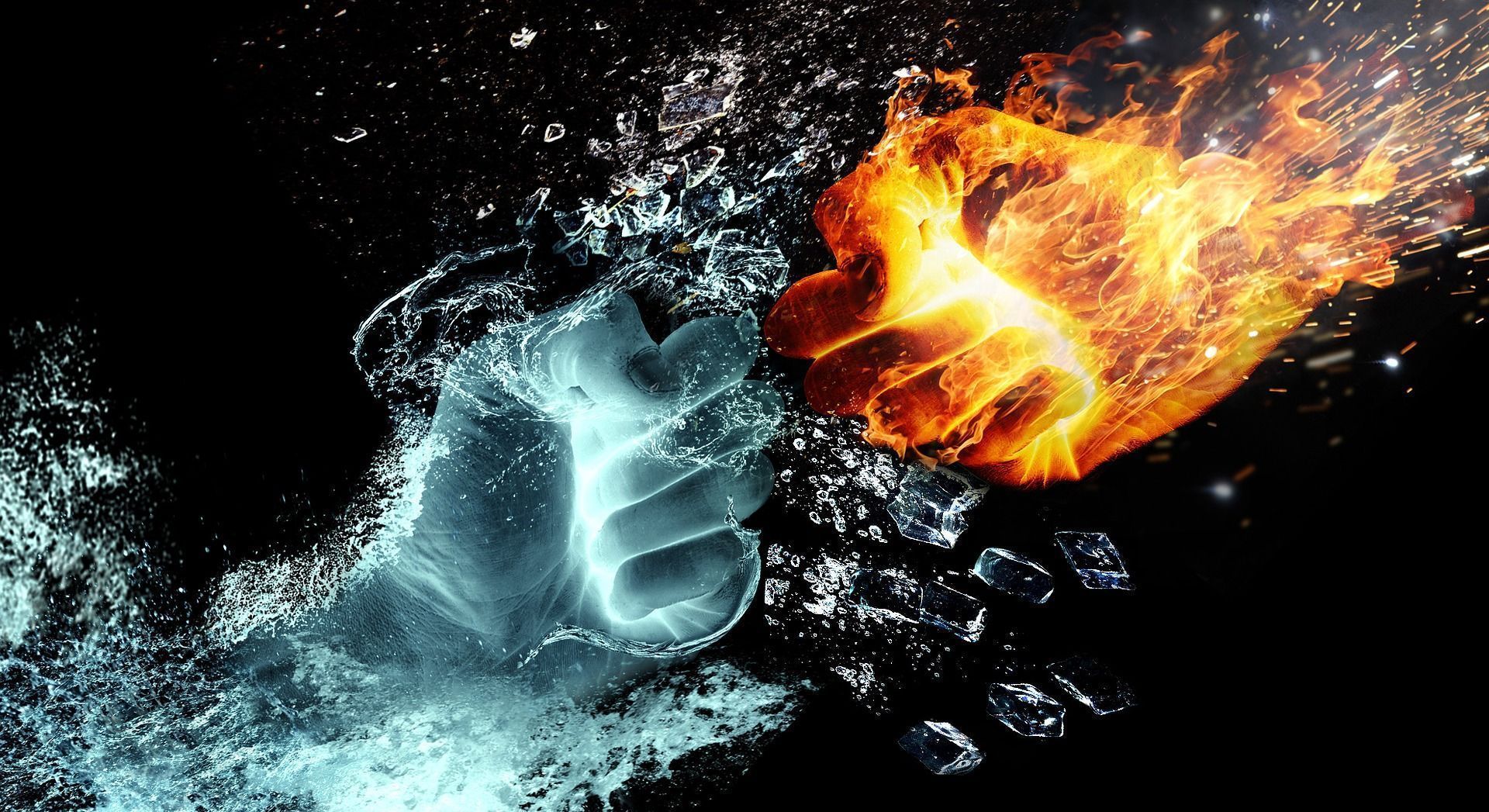
The View from the Opposition:
No one's ideas are beyond questioning. In this section, I argue the case for the opposition and raise some points you might wish to evaluate for yourself while reading this book.
#1: Not Every Solution Has Been Explored
One criticism that's often laid against this book is that Nelson D. Schwartz doesn't offer much in the way of solutions to these systemic problems. Maybe he can't. Maybe there aren't any. Or at least they resist easy answers. That's probably more like it.
The problem, however, has been described well in this book, which is an important step. Schwartz's book needs to exist if only to alert more people to the fact that there is a problem.
As I've explored above, the Pareto Principle states that inequality is a recurring, stable feature of human life. Some people will always have more than others, whether that be money, book sales, video views, or something else. With that in mind, I don't think "making everyone equal" is necessarily the answer here.
That being said, other people have brought up possible solutions such as free college tuition, ending the home mortgage deduction, or moving away from funding public schools with local property taxes. Speaking for myself, I don't know enough about those potential, partial solutions to have an opinion.
What I will say is that freedom and equality are both mutually exclusive. This means that if we are free, then we probably won't be equal, and if we're all equal, then we're probably not free. It's the eternal struggle, the endless debate, carried on ad infinitum (and ad nauseam!) in town halls everywhere. I do, however, know that whatever the precise balance between freedom and equality, when it comes to wealth distribution and opportunity, we can do better.
#2: Capitalism is Like a Vietnam War Veteran
When U.S. Army veterans returned home after fighting and dying in the Vietnam War, they discovered that America had mostly forgotten about them. Many of those who didn't forget were openly hostile to the returning soldiers; spitting on them, despising them, refusing to extend their thanks, or even a "welcome home."
In the same way, people tend to forget that capitalism is the economic system that lifted America out of poverty in the first place and created the middle class that is now largely locked out of the upper class - another creation of capitalism, for better or for worse.
There's no "system" that will render people perfectible, or that will be conducive to the creation of the most perfect society we can imagine. All systems are imperfect, and it's only the people within each system we can hope to help, change, influence, or improve.
That being said, some people would point out that capitalism has made an awful lot of people very rich, and, most importantly, saved a much greater number of people from extreme poverty or death. Like the Vietnam veterans returning home, we can acknowledge their service, while still opposing their methods, many of their actions, and the unintended consequences of those actions.
#3: Responsibility, Risk, and Reward
Workers are paid in proportion to their value to the company that employs them, not because the owner feels sorry for them, or because they've been there X number of years, or because they "work really hard."
More crudely, if you as an individual wish to be paid more, you should focus on increasing your value to society. Okay. That last statement can probably be misinterpreted, so let me expand on it a little bit.
Obviously, teachers contribute tremendous value to society (more than any lobbyist or lawyer I've ever met), and yet they continue to be monstrously underpaid. But generally speaking, you are paid more when people are willing to pay you more for a product or service you provide. The best teachers aren't doing it just for the money anyway.
In the book, Schwartz quotes Herb Kelleher, founder of Southwest Airlines, sharing a lesson from his mother, "Every person and every job is worth just as much as any other person, and any other job.” That's just not true, at least in the economic sense. A surgeon's contribution is greater than a security guard's (all other things being equal), and not only because of the magnitude of the surgeon's life-saving contribution, but also because of the time, money, effort, and risk that have been invested in developing their surgical skills.
Thus, surgeons can expect to command greater monetary compensation than security guards and will generally have access to greater privileges afforded to them as their wealth allows. The surgeon earned it, basically, even though we're ignoring tons of other pertinent information, such as possible discrimination, lack of opportunity, etc. But to say that every job is worth as much as any other job isn't factually correct. And if you want to earn more money, you either need to increase the scale or magnitude of your contribution to society.
#4: The Internet Gold Rush
It's never been easier than it is today to start from nothing and become fabulously rich 10 years later. That opportunity has come in the form of the Internet, and billions of people have access to it.
That's not to say that "everybody can do it" or "you have no excuse" - that's just silly. Just because most Americans have access to the internet doesn't mean that everyone can gain millions of followers overnight, score instant brand deals, and earn tens of thousands of dollars in YouTube ad revenue just like that. But lots of people do, and the Internet is remarkably democratic.
Whatever your interests, abilities, and values, there is a community out there of people who share them, and by becoming influential within that community, you have the ability to open up income streams that the titans of industry in centuries past could only dream of.
Obviously, some skill, patience, and hard work are required. There are plenty of people out there who will gladly sell you a $2,000 course to learn Amazon FBA or whatever, but I'd venture to guess that the vast majority of people who buy those courses never do anything with them.
But there are enough Internet success stories out there (real ones) to make you realize that the amount of economic opportunity out there is just staggering, and it's available to most people, regardless of economic class, if they're willing and able to capture some of it.
#5: Don't Take from the Rich; Give to the Poor
I've mentioned this several times throughout this breakdown, but it belongs in this section as well. I'll keep it brief. Everyone can become richer, including those who are already rich, but especially those currently at the bottom. We can increase the availability of opportunity so that everyone has it, rather than radically redistributing the wealth from the top down. We don't have to rob the rich to feed the poor. The velvet rope can traverse the globe.
"The test of a first-rate intelligence is the ability to hold two opposed ideas in the mind at the same time and still retain the ability to function.”
-F. Scott Fitzgerald

Questions to Stimulate Your Thinking:
The quality of your questions determines the quality of your life. That's also how you get the absolute most out of any book that you decide to read:
You ask great questions the whole time - as though the book was on trial for its life.
Here in this section are a few questions that can help guide and stimulate your thinking, but try to come up with your own additional questions, especially if you decide to read this book the whole way through...
#1: "Have you ever felt guilty purchasing a product or experience that you knew would be outside the price range of most people in your country?"
#2: "Have you ever felt excluded or left behind after seeing other people pay to skip the line or afford services that were out of your reach?
#3: "Have you noticed the decline in the quality of our public spaces over the last few years? The past decade? Have you ever been exposed to evidence of the growing gap between rich and poor consumers?"
#4: "When you're shopping, traveling, or otherwise spending money, do you notice that richer consumers have a much wider array of products, services, and experiences made available to them, even within the same store or location? Are you aware of the existence of a velvet rope, or do these companies tend to hide their class system?"
#5: "Have you ever experienced either benign or malignant envy? When and for how long? Were you able to move past it? How?"
#6: "How will you change your spending habits after being presented with the information in this book? Or will you keep them relatively stable?"
#7: "What specific steps can regular, everyday citizens take to shape a more egalitarian culture? Can you start today?"
#8: "What do you think of Nelson D. Schwartz's potential solutions to the problem of inequality? Does he go far enough? Too far? What would you add or change?"
#9: "How would you address the growing divide between the spending power of citizens on both sides of the velvet rope?"
#10: "Do you believe that inequality can ever be completely eliminated? Do you think that it's a worthy goal? Why or why not?"
"Judge a man by his questions, rather than by his answers."
-Voltaire
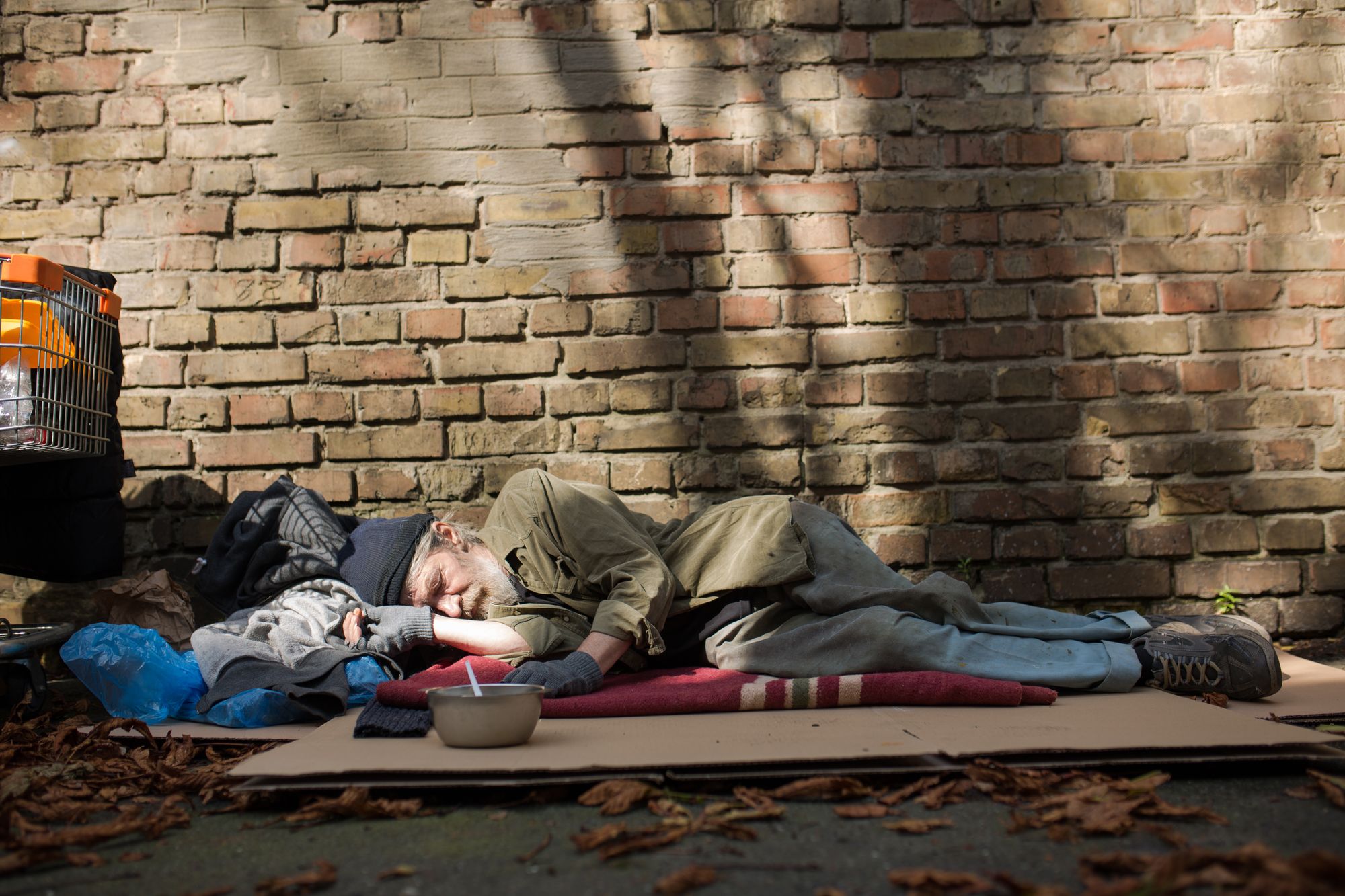
Action Steps:
So you've finished reading. What do you do now?
Reading for pleasure is great, and I wholeheartedly support it. However, I am intensely practical when I'm reading for a particular purpose. I want a result. I want to take what I've learned and apply it to my one and only life to make it better!
Because that's really what the Great Books all say. They all say: "You must change your life!" So here, below, are some suggestions for how you can apply the wisdom found in this breakdown to improve your actual life.
Please commit to taking massive action on this immediately! Acting on what you've learned here today will also help you solidify it in your long-term memory. So there's a double benefit! Let's begin...
#1: Vote with Your Dollars
Any system can only survive with the support we give it, whether actively, through our direct involvement, or indirectly, through our tacit acceptance of the way things are.
If you don't approve of the current state of affairs, and the emphasis on appealing to affluent consumers at the expense of everyone else, you can simply withdraw your support. We can do this by "voting with our dollars," meaning only supporting businesses whose philosophies align with our own.
If you don't approve of what Amazon is doing in the global marketplace, buy your books at a local bookstore (and support your local bookstores anyway!). If you don't approve of the way certain companies treat their poorer customers, take your business elsewhere. The companies themselves may not notice you leave. But if enough people follow you, alarm bells will be raised.
This is easier said than done when you have kids who want to go to Disney World for vacation, for example. You may vehemently disapprove of the way that richer guests can just skip the line whenever they want, but your kids really want to go! You love them and want to give them an incredible experience they'll remember for the rest of their lives. What's to be done?
There may be nothing morally wrong with businesses specifically catering to customers who are willing to pay more, but you can design a different vacation. Plus, the time spent with your children is what matters, not where you take them or how much money you spend on them while you're there.
If you're still set on taking your kids to Disney World, however, perhaps you could pay for someone less fortunate to experience that same magic that you're willing to share with your own children. Pay to skip the line, sure. Pay for the best damn Disney World experience that money can buy if you want to - but pay for someone else to experience it as well. Maybe even a stranger.
A good personal spending rule some people live by is that if you can't afford to buy it twice, you can't afford it. Maybe if you can't afford to donate an equally elevated consumer experience to someone less fortunate, then you can't afford it either.
#2: Change the Culture
The wider culture is just made up of people. That's true whether it's your workplace culture, or on the scale of nations and civilizations. Customs and traditions only survive with the support of the dominant culture, and cultures can be changed. Perhaps not easily (or effectively) from the top down, but they can be changed.
One way is to actively shape your own culture and invite people who share similar values to join you. You can live your values with integrity while providing an opportunity for other people to live out those same values in a culture where that attitude is the norm.
This can be done on the level of personal relationships, neighborhoods, businesses, and more. Decide what's most important to you, live true to those values, and then create a safe place for everyone else who shares those values to express them openly, without fear of ridicule or derision.
Trying to change a culture from the top down has often resulted in disaster, and such an effort is rarely successful. But many people before you have successfully changed themselves, and that inward change often ripples outward and goes on to change the world.
#3: Focus on Giving
A major theme in my breakdown of The Velvet Rope Economy has been the idea that instead of trying to tear the rich down, we might instead think about trying to improve the lives and prospects of the poor. Changing the focus from taking to giving has always worked wonders in my own life.
More modest consumers even have something of a moral advantage over richer consumers because giving tends to mean more when you have less to give in the first place. I would respect someone who gave $100 out of $1,000 far more than I'd respect someone who "only" gave $100,000 out of $10,000,000.
So my humble advice here would be to focus on giving and giving even when you think you can't. Give when it's most difficult to do so. Always be on the lookout for opportunities to give rather than take, whether that's in terms of actual money or any currency that we all value, such as attention, respect, and compassion.
Even just one person making the conscious, intentional shift from taking to giving might not seem like much, but over time, and at scale, it literally changes the entire culture. When more people look for ways they can be of service, instead of ways to receive better service, the velvet rope is lifted and we inhabit this space together.
"The path to success is to take massive, determined action."
-Tony Robbins


About the Author:
Nelson D. Schwartz has worked at The New York Times for a decade and has covered economics since 2012.
Before that, he wrote about Wall Street and banking for The Times and also served as European economic correspondent in Paris from 2008 to 2010. He joined the paper in 2007 as a feature writer for the Sunday Business section.
Schwartz is a graduate of the University of Chicago and worked for 10 years at Fortune Magazine before joining the Times. A native of Scarsdale, N.Y., he lives with his family on the Upper East Side of Manhattan.
Additional Resources:
Inequality is a "Big Business" | NPR Article
The Velvet Rope Economy | New York Times
Give-Well.org | Effective Altruism Charity
This Book on Amazon:
The Velvet Rope Economy, by Nelson D. Schwartz
If You Liked This Book:
Regarding the Pain of Others, by Susan Sontag
The Status Game, by Will Storr
Not for Profit, by Martha Nussbaum
Bullshit Jobs, by David Graeber
Enlightenment Now, by Steven Pinker
Excellent Sheep, by William Deresiewicz

